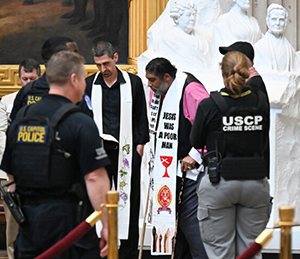CHARLOTTE, N.C. (RNS)—Nearly six months ago, Pastor Ben Boswell gave a sermon begging members of his Charlotte, N.C., church not to give up after Donald Trump’s election.
“We may not have been able to stop the darkness from coming,” he told members of his church on Nov. 10. “But that does not mean the fight is over. It has only just begun.”
Two weeks after giving that sermon, he was forced to resign as senior pastor of Myers Park Baptist Church. But just as he urged his flock not to give up the fight, he is now following his own advice.
On June 1, Boswell, 44, will give his first sermon at a new Baptist church he is founding with the support of dozens of his former members.
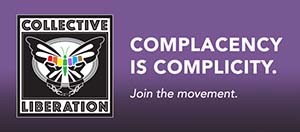 The logo for the new Collective Liberation Church features a butterfly breaking free of chains locked around its legs. Boswell promises in a promotional website video to build a church committed to “dismantl[ing] systems of oppression and creat[ing] justice, equity, and freedom for everybody—for all people.”
The logo for the new Collective Liberation Church features a butterfly breaking free of chains locked around its legs. Boswell promises in a promotional website video to build a church committed to “dismantl[ing] systems of oppression and creat[ing] justice, equity, and freedom for everybody—for all people.”
For Boswell, who has a 15-year-old adopted Black daughter, a big piece of that project is becoming anti-racist.
He is proud to advocate for diversity, equity and inclusion, even as the government has shut down DEI efforts in federal offices and pressured businesses and universities to do likewise. He stands for the rights of LGBTQ+ and Indigenous people. He wants expanded economic opportunities for the poor.
“I think the church needs to find itself in deeper and deeper solidarity with the people the empire is specifically targeting and harming: Palestinians, immigrants, transgender people, women in need of reproductive care, people of color,” he said. “I could just go on.”
The new church, with an inaugural service on June 1 on the campus of Union Presbyterian Seminary, is expected to bring together a mix of people.
Its newly appointed associate pastor, Rodney Sadler, a professor of Bible at Union Presbyterian Seminary and director of the seminary’s Center for Social Justice and Reconciliation, is Black.
“We are presenting a welcoming, inclusive, broad-based, justice-oriented, love-focused congregation at a time when our nation is going through intense division, divisiveness and fomenting hatred,” said Sadler. “We want to be a witness to a different way of being.”
Over the past nine years, Boswell led one of the city’s most progressive white churches. Myers Park Baptist, a tall steepled church, was an early leader in the city’s racial integration efforts. It split off from the Southern Baptist Convention in 1998 and has long been committed to LGBTQ+ inclusion.
Focused on racial justice at Myers Park
Boswell, who became senior pastor in 2015, dedicated his pastorate to racial justice and to increasing the church’s nonwhite ranks to about 20 percent.
The Sunday after Trump was first elected in 2016, Boswell invited prominent pastor and progressive activist William J. Barber II to preach a sermon on race.
During Boswell’s time at Myers Park, he developed an anti-racism training called “Confronting Whiteness,” also the name of his book and a conference. Some 1,000 people have participated in those conferences, and Boswell has trained 100 facilitators to continue the work.
Monica X. Thompson, a psychotherapist who moved from New York City to Charlotte two years ago, attended the Confronting Whiteness conference and within a week joined Myers Park Baptist.
“I was not a churchgoer at all,” Thompson said. “But I was really inspired by the work of the Confront Whiteness conference, and I was like, oh, so there’s a church that’s a part of it.”
Thompson has since quit Myers Park and is now on the leadership team of Collective Liberation Church. She said she was put off by the church’s decision to let Boswell go.
“Many times when people are going against systems of oppression, they tend to be removed forcefully outside of whatever system they’re working in, so it was really disheartening,” Thompson said.
Myers Park attendance declined significantly
Publicly, church leaders said Boswell’s removal had nothing to do with politics or his preaching. Two weeks after his passionate sermon decrying Trump’s election, and four days before Thanksgiving, the deacon board called a meeting over Zoom and voted to ask Boswell to resign.
In a recording of the meeting obtained by RNS, Chairwoman Marcy McClanahan defined the problem as declining membership and revenues. Attendance at Myers Park had shrunk to 150 from a high of 350 before Boswell arrived, she said. She was also hearing dissatisfaction from church staff about his leadership.
But another deacon hinted at an underlying problem with Boswell’s preaching.
On the recording, Robert Dulin is heard saying: “A lot of these people left the church … in the last few years. If any of you talked to them, you heard the same thing over and over again: I’m tired of being indicted because I’m white. I’m tired of being banged over the head every week about immigrants and LGBTQ, and I just want to come to church and be encouraged. … I think what we need is 80 percent comfort and 20 percent social justice.”
The vote to ask for Boswell’s resignation was 17-3.
‘More than enough work for all of us’
Tim Emry, one of the three dissenting deacons who has since resigned to join Collective Liberation, said the older deacons were increasingly feeling uncomfortable with Boswell’s critique of whiteness.
“They didn’t want to transform the core of the church because they believed they are liberal and progressive and accepting of all. So why do we need to change?” said Emry, a white man married to a Black woman.
“We’re the good white people, right? We want different people to come in, but we want them to learn how to do it our way.”
Boswell, a graduate of Duke Divinity School and St. Paul School of Theology, said he never imagined starting a new church. But people around him gradually convinced him he should try.
Six months after his firing, his old church supports his efforts.
“We wish him success on his new endeavor as I’m sure he wishes us continued success in our efforts,” wrote Scott Crowder, the new deacon board chair, in an email. “There are many ways to fight injustice and help underserved and overlooked communities—there is more than enough work for all of us!”
The first service for Collective Liberation will be in the afternoon, at 4 p.m., so as not to conflict with those attending morning church services elsewhere but still interested in checking out the new church.
The congregation will be affiliated with both the American Baptist Church, a historically Black denomination, and with the Alliance of Baptists, a small progressive denomination of about 140 congregations.
But as much as Boswell wants to be strategic and accommodating in shaping his new church, he is clear that he will not deviate from his critique of what he calls “American Empire.”
“A lot of folks will imagine you only say what the congregation has ears to hear,” Boswell said. “I have come from a different way of thinking.”
Instead of compartmentalizing social justice as just one of many offerings within the church, he wants to make it the heart and soul.
“When we compartmentalize (social justice), we kind of make it into the stepchild or the forgotten part of what it means to follow Jesus, when actually it’s the core of what it means. Justice is primary. If any of those other things take the place of justice, we’ve lost the gospel.”
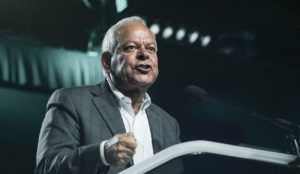
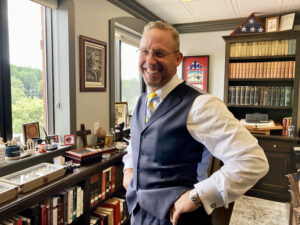
 The logo for the new Collective Liberation Church features a butterfly breaking free of chains locked around its legs. Boswell promises in a promotional website video to build a church committed to “dismantl[ing] systems of oppression and creat[ing] justice, equity, and freedom for everybody—for all people.”
The logo for the new Collective Liberation Church features a butterfly breaking free of chains locked around its legs. Boswell promises in a promotional website video to build a church committed to “dismantl[ing] systems of oppression and creat[ing] justice, equity, and freedom for everybody—for all people.” The United States, Canada, Western Europe, Australia and New Zealand are included in the secular west cluster.
The United States, Canada, Western Europe, Australia and New Zealand are included in the secular west cluster.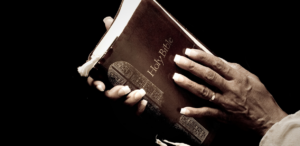 But also in the secular west, Americans outpace other nations in key areas of biblical engagement, and judge the Bible more favorably.
But also in the secular west, Americans outpace other nations in key areas of biblical engagement, and judge the Bible more favorably.



